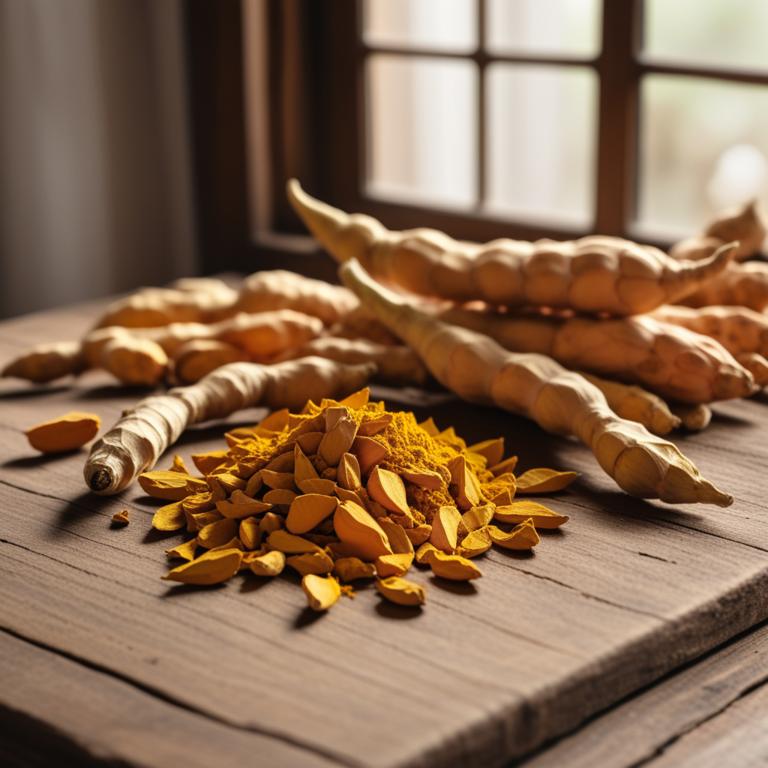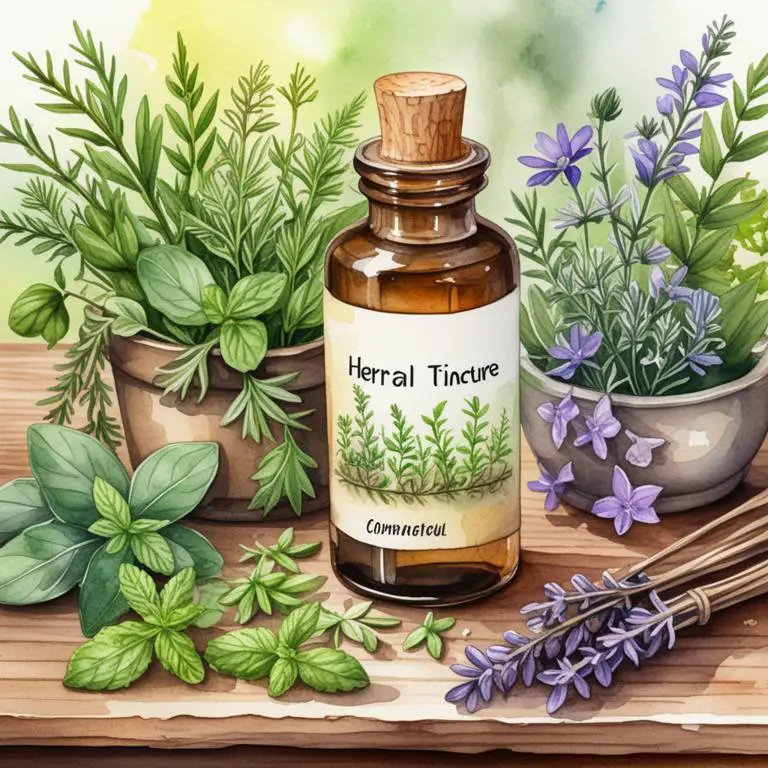Updated: Dec 1, 2024
The Causes, Remedies, and Herbal Solutions for Bloating
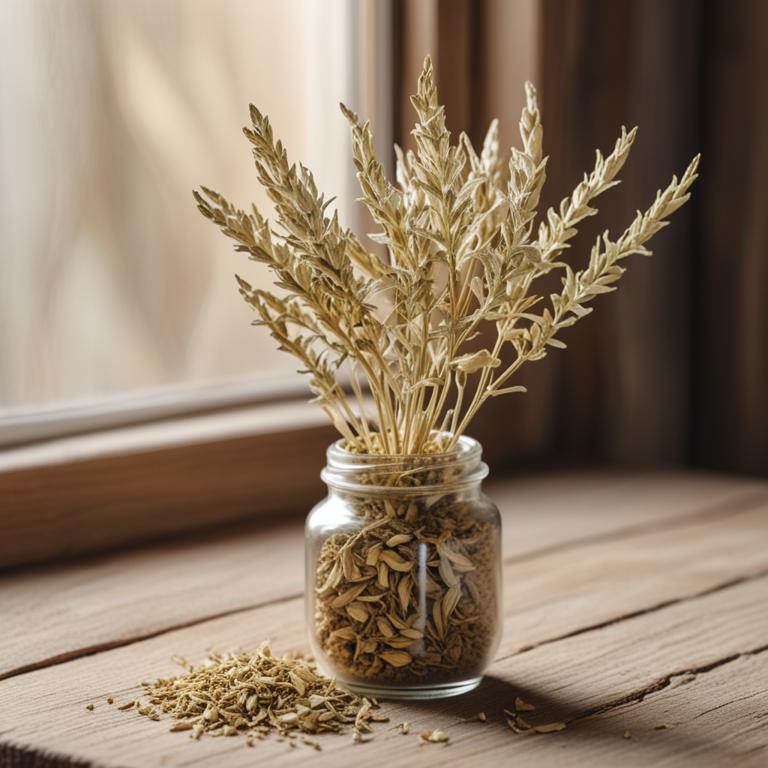
Bloating is a common issue where your stomach feels uncomfortably full and tight, often accompanied by gas, discomfort, and digestive problems.
It can make everyday tasks, like eating, exercising, or even just sitting comfortably, a real challenge. So, what causes bloating?. Eating foods that are hard to digest, such as beans, cabbage, or broccoli, can lead to bloating. Other causes include swallowing air while eating or drinking, hormonal changes, and certain medical conditions. Herbal remedies have been used for centuries to alleviate bloating symptoms.
Some of these healing herbs include peppermint, ginger, and fennel, which have natural anti-inflammatory and carminative properties that help ease digestion and reduce gas. These herbs can be prepared in various ways, like teas, which are a popular and soothing way to ingest them. You can make a peppermint tea by steeping fresh peppermint leaves in hot water, or try a ginger tea by simmering fresh ginger in water. Fennel tea can be made by steeping fennel seeds in hot water. Drinking these teas after meals may help alleviate bloating symptoms.
Additionally, some herbal remedies, like probiotics, can help maintain a healthy balance of gut bacteria, which is essential for proper digestion and preventing bloating.
Table of Contents
What triggers bloating sensations?
The main causes of bloating are quite simple yet often overlooked.
Swallowing air, for example, can cause bloating because when we eat or drink too quickly, or talk while eating, we tend to swallow more air than usual. This air gets trapped in our digestive system and expands, leading to bloating. Another common cause is beans, which contain sugars that aren't fully broken down by our bodies. These undigested sugars are then fermented by the bacteria in our gut, producing gas and causing bloating.
Gas itself is also a major cause of bloating. Our bodies break down the food we eat into nutrients, but some of these nutrients, like fiber and sugars, are not fully absorbed. These leftovers get to our large intestine, where they're fermented by bacteria, producing gas and leading to bloating. Lastly, foods like broccoli contain raffinose, a sugar that our bodies have trouble breaking down.
When this sugar reaches our large intestine, it's fermented by bacteria, producing gas and causing bloating.
What are the advantages of using herbs to reduce bloating?
Using herbs for bloating can be super helpful.
They can ease digestion and reduce swelling in the belly. Some herbs have anti-inflammatory properties, which can calm down the digestive system and prevent gas buildup.
This can lead to a decrease in discomfort and pain. Other herbs can help stimulate digestion, making it easier to break down food and absorb nutrients. This can reduce symptoms of bloating, such as feeling bloated, gassy, and uncomfortable.
Additionally, some herbs have natural diuretic properties, which can help relieve water retention and reduce swelling in the body.
What are the top medical herbs for managing bloating symptoms?
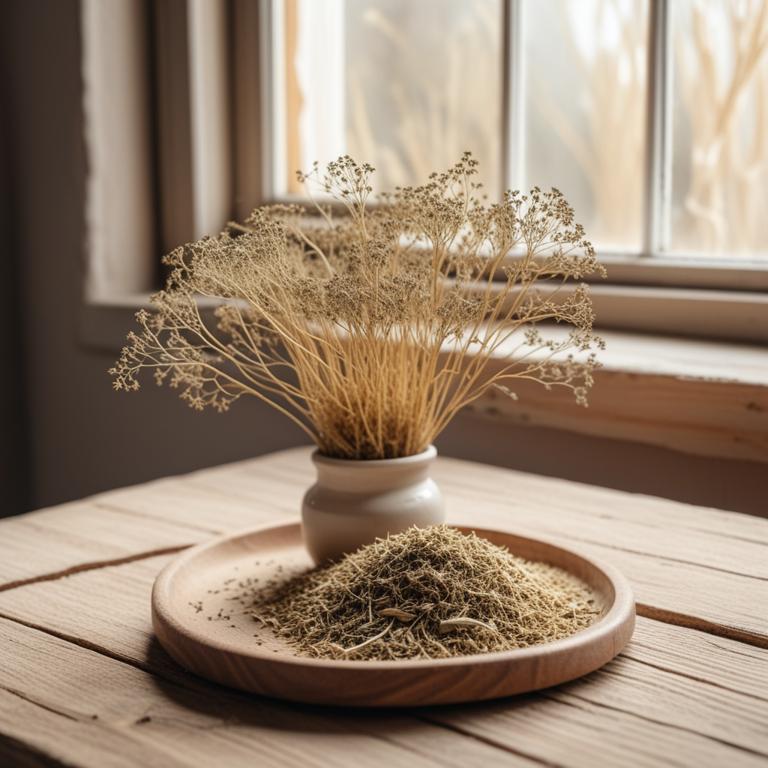
Herbs have been used for centuries to ease digestive issues like bloating.
Fennel (Foeniculum vulgare) is a great example, as it contains compounds that help relax the muscles in the digestive tract, allowing gas to pass through more easily. This makes it a popular choice for people who experience bloating after eating. Another herb that can help is ginger (Zingiber officinale). It has natural anti-inflammatory properties that can reduce swelling in the digestive tract, which can contribute to bloating. Additionally, ginger has a soothing effect on the stomach, making it easier to digest food and reducing discomfort. Licorice root (Glycyrrhiza glabra) is also useful in this regard. It can help protect the stomach lining and reduce inflammation, which can lead to bloating.
The root also contains compounds that can help stimulate digestion and ease gas and bloating. Dill (Anethum graveolens) is another herb that can help ease bloating. Its essential oils can help relax the muscles in the digestive tract, allowing gas to pass through more easily. Dill can also help reduce inflammation and ease digestive discomfort. Cumin (Cuminum cyminum) is a common spice that can help with bloating. It contains compounds that can help stimulate digestion and ease gas and bloating. Cumin can also help reduce inflammation and ease digestive discomfort. These herbs can be used in various forms, such as teas, capsules, or added to food.
They can be especially helpful for people who experience bloating after eating certain foods or have sensitive stomachs.
What are the most widely used herbal treatments for bloating?
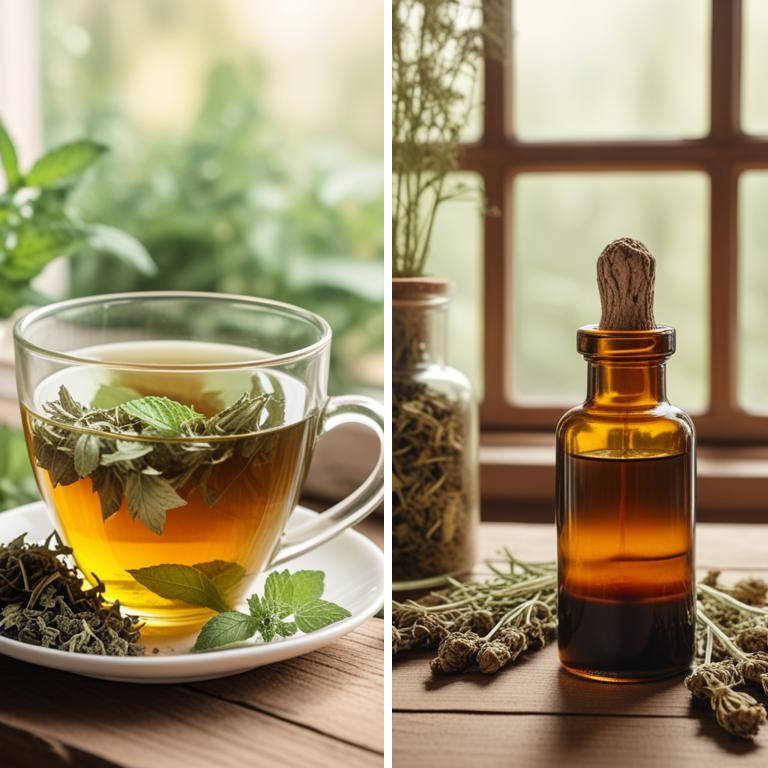
Herbal preparations can help with bloating in different ways.
A decoction is a liquid preparation made from roots, bark, or other hard plant materials that are boiled in water. Decoctions are good for bloating because they can help ease digestive issues caused by inflammation in the gut. For example, a decoction made from ginger can reduce inflammation and ease bloating. Dried tea is another way to take herbs for bloating. Dried tea is made by drying herbs like peppermint, chamomile, or fennel, and then steeping them in hot water. Dried tea can help relax the muscles in the digestive tract and reduce bloating. Fennel tea, for instance, has carminative properties that can help release trapped gas in the digestive system. A liquid tincture is a concentrated herbal extract that's made by soaking herbs in a solvent like alcohol or glycerin.
Liquid tinctures can be taken sublingually (under the tongue) or added to food and drinks. Tinctures like dandelion root can help stimulate digestion and reduce water retention, which can contribute to bloating. An infusion is a liquid preparation made by steeping herbs like leaves, flowers, or delicate stems in hot water. Infusions are good for bloating because they can help soothe digestive issues and relax the muscles in the digestive tract. A herbal infusion like lemon balm can help reduce inflammation and ease digestive discomfort. Herbal capsules are another way to take herbs for bloating. Capsules are made by filling gelatin or vegetable capsules with dried herbs or herbal powders. Capsules can help regulate digestion and reduce bloating.
For example, a capsule made from probiotic herbs like Lactobacillus can help restore the balance of good bacteria in the gut, which can help reduce bloating and other digestive issues.
Additional Resources:
Are there any herbs that can worsen bloating?
If you experience bloating, it's a good idea to limit or avoid certain herbs that can make it worse.
Artemisia absinthium, also known as wormwood, can cause digestive issues, including bloating, due to its bitter compounds. These compounds can slow down digestion and lead to gas buildup, making bloating even more uncomfortable. Similarly, Coriandrum sativum, or coriander, contains oils that can cause stomach discomfort and bloating in some people.
Berberis vulgaris, or barberry, contains berberine, a compound that can irritate the digestive system and lead to bloating. Silybum marianum, or milk thistle, is often used to support liver health, but it can also cause stomach upset and bloating in some individuals, especially when taken in large doses. Aristolochia clematitis, or birthwort, is a particular concern, as it contains compounds that can cause serious gastrointestinal problems, including bloating and discomfort.
If you're already experiencing bloating, it's best to avoid these herbs or consult with a healthcare professional before using them.
FAQ
Are there any specific herbs that can prevent bloating?
Ginger has natural anti-inflammatory properties that can help reduce bloating.
Fennel seeds can also ease digestion and gas. Peppermint oil, when consumed, can calm the stomach muscles and promote smooth digestion.
These herbs may help alleviate bloating, but it's essential to consume them in moderation and as part of a balanced diet.
Is it safe to use herbal remedies for bloating during pregnancy?
It's best to be cautious with herbal remedies during pregnancy.
Some herbs may stimulate the uterus or cause other complications. Peppermint and ginger are often considered safe, but it's still important to know how they might affect you.
Read labels carefully and talk to trusted sources about the specific remedies you're interested in.
Are there any herbs that can reduce the frequency of bloating?
Ginger has been known to help reduce bloating.
Its natural anti-inflammatory properties can ease digestive discomfort. Peppermint oil can also provide relief by calming the muscles in the stomach and improving digestion.
These herbs may help alleviate bloating by soothing the digestive system.
Related Articles
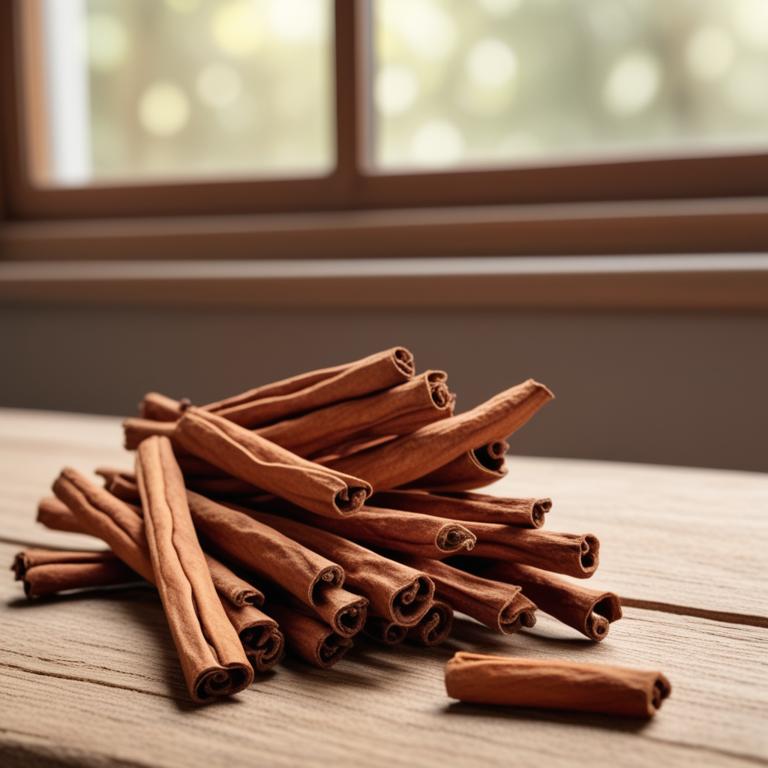
Stomach Growling: Understanding Causes, Prevention, and Herbal Remedies
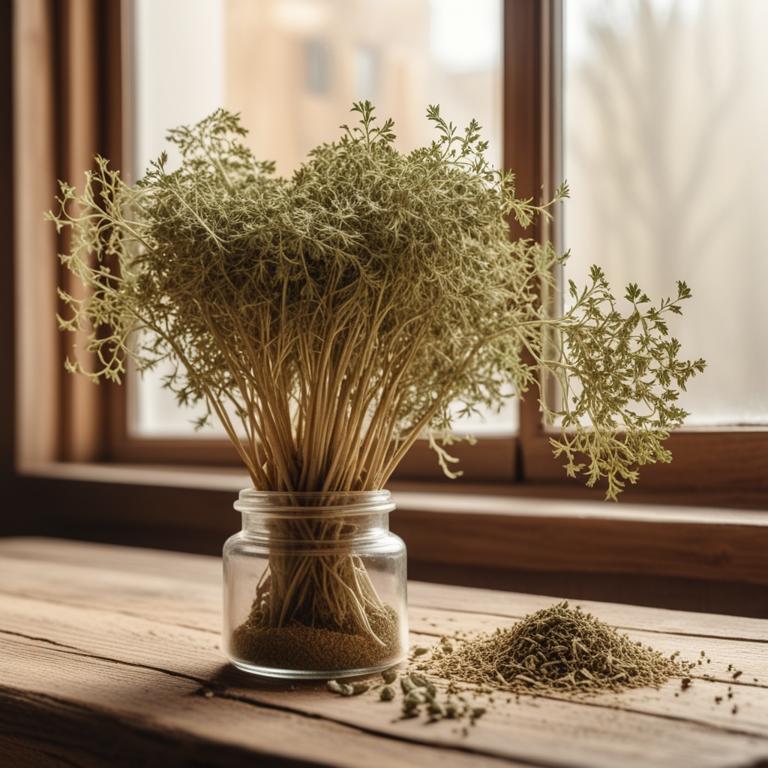
Causes and Herbal Solutions for Flatulence Relief
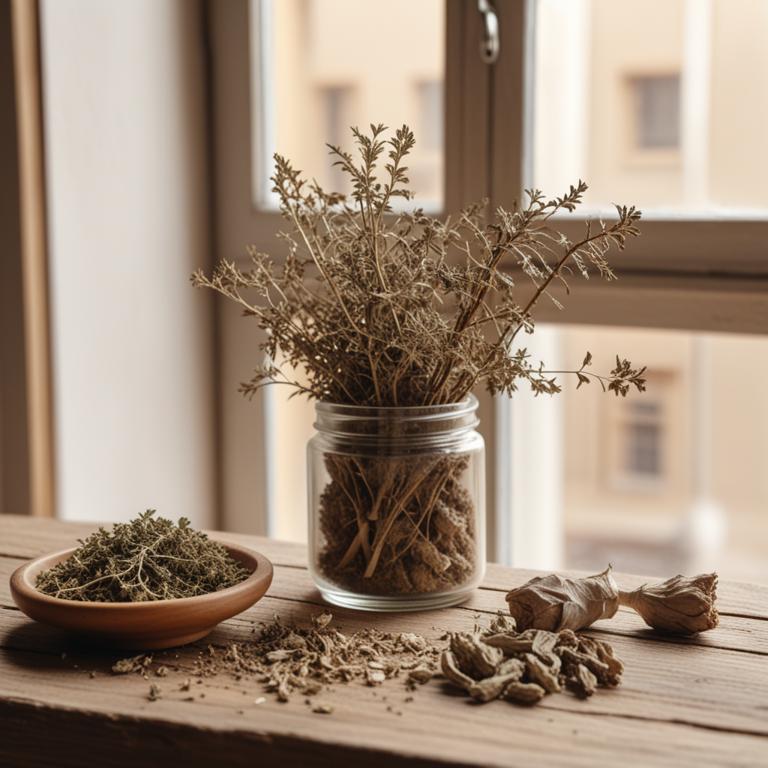
Herbal Relief for Upset Stomach: Causes, Medicinal Herbs, and Preparations

Vomiting: Understanding the Causes and Natural Remedies with Medicinal Herbs and Herbal Preparations
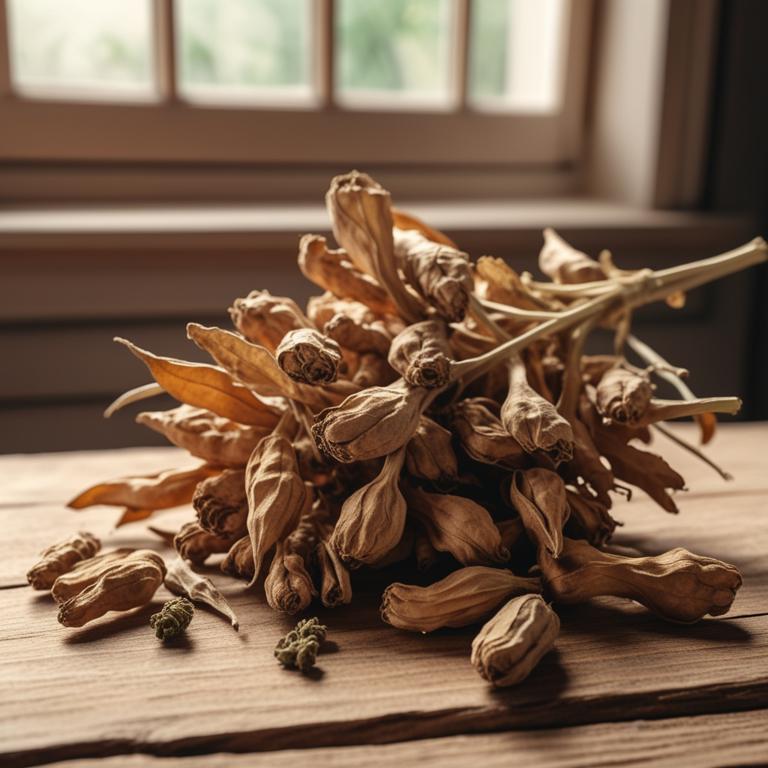
Indigestion Relief with Medicinal Herbs and Herbal Preparations: A Comprehensive Guide
